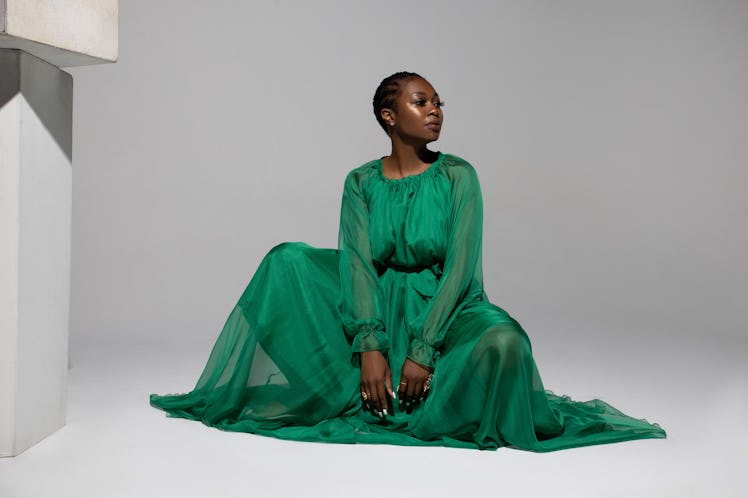
Black Girl Sunscreen’s Shontay Lundy Knows How To Nourish A Brand
Shontay Lundy knew there had to be a better way. The residue that sunscreen leaves behind flatters no one, and Lundy was underwhelmed at the sunscreen options available for Black women that didn’t leave behind those white streaks. She followed her intuition and after years of feeling neglected by the beauty industry, Black Girl Sunscreen was born. Last May, Lundy’s company secured a $1 million investment.
“Black Girl Sunscreen has disrupted the industry because we have brought attention to a group of people that have been ignored for decades,” Lundy tells Elite Daily. “Black people had been ignored because there has been no professional validation that Black people are susceptible to sunburn and melanoma.”
After starting Black Girl Sunscreen in 2016, the beauty brand owner started on a journey to not just sell a product but educate entire groups on the dangers of sunburns and melanoma on dark skin.
“The dermatology world wasn’t talking about that, and I’ve heard this from the source, nor have they been trained or taught on ethnic skin,” Lundy says. “If dermatologists and skin professionals aren’t talking about the effects of UV rays on dark skin, why would a company create a product for dark skin?”
While skin cancer rates tend to be lower for people with darker skin, when they do occur, they often have a worse prognosis. A study published in 2019 showed that Black populations had a survival rate of 66 percent compared to 90 percent for white populations. Lundy hopes that people of color heed that warning and wear the sun protection that works best for them, regardless of whether it’s her product or not.
“We’re not saying you have to wear our sunscreen,” she says. “We’re just saying, be open-minded, have the education behind sun safety and choose whatever product you identify with or works best with your skin.”
After growing up and going to college in upstate New York, the entrepreneur moved to Miami to pursue her MBA. Putting herself in new environments has set the tone for Lundy’s career. It’s something she attributes her success to — not being afraid to immerse herself in new energy, people, cultures, and as a result, opportunities.
She worked in the corporate world for 12 years and observed how departments worked together — or didn’t — and learned how to communicate with people at different levels in their careers as she went from entry level to upper management. “That was the experience that helps me today create the structure of Black Girl Sunscreen, plus having and following my own intuition,” Lundy tells Elite Daily.
Her corporate experience combined with the intangibles, as she calls them, of following her intuition and not being afraid to parachute into a new environment catalyzed her path to entrepreneurship.
“Having the confidence and the work ethic and not giving up,” the beauty brand owner says. “Refusing the word ‘no.’ If I did decide to talk to a manufacturer — several manufacturers, actually — and they didn’t believe in the idea, it wasn’t like the door had just closed on me. It was, OK, let me knock on another door, let me go around this door.”
Today, Black Girl Sunscreen is the only indie Black-owned brand that’s carried in Target’s sun care section. The brand’s two products are SPF 30 and SPF 50 for kids, and both are made with natural ingredients like avocado oil, aloe, and cacao seed butter. Since starting her business four years ago, Lundy has been interviewed in countless publications, won awards, and brought Black Girl Sunscreen to Nigeria.
For aspiring entrepreneurs, her advice begins with self-awareness.
“You may think you can do something, but if you know you don’t have that strong of a work ethic, if you know, hey, I’m an 8 to 5-er, this isn’t an 8-5 gig,” she says. “So have self-awareness, then work ethic, and lastly is the consistency. Whatever that is, make sure you’re doing it on a consistent basis whether that’s every day or every week. That’s what you need to do to nourish and grow something.”
This article was originally published on